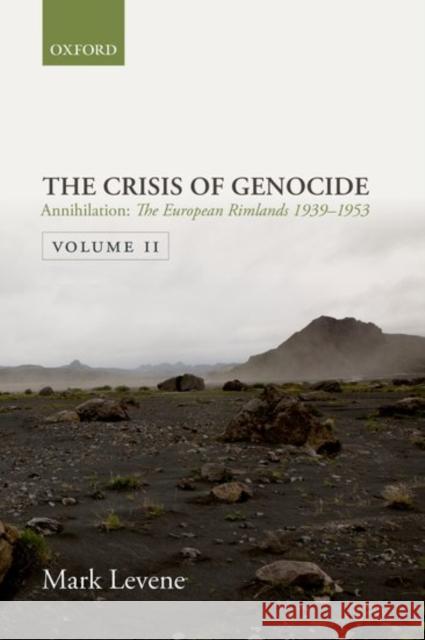Annihilation: Volume II: The European Rimlands 1939-1953 » książka
Annihilation: Volume II: The European Rimlands 1939-1953
ISBN-13: 9780198791775 / Angielski / Miękka / 2016 / 560 str.
From the years leading up to the First World War to the aftermath of the Second, Europe experienced an era of genocide. As well as the Holocaust, this period also witnessed the Armenian genocide in 1915, mass killings in Bolshevik and Stalinist Russia, and a host of further ethnic cleansings in Anatolia, the Balkans, and Eastern Europe. Crisis of Genocide seeks to integrate these genocidal events into a single, coherent history.
Over two volumes, Mark Levene demonstrates how the relationship between geography, nation, and power came to play a key role in the emergence of genocide in a collapsed or collapsing European imperial zone - the Rimlands - and how the continuing geopolitical contest for control of these Eastern European or near-European regions destabilised relationships between diverse and multifaceted ethnic communities who traditionally had lived side by side. An emergent pattern of toxicity can also be seen in the struggles for regional dominance as pursued by post-imperial states, nation-states, and would-be states.
Volume II: Annihilation covers the period from 1939 to 1953, particularly focussing on the Second World War, and its aftermath, the Holocaust and its lasting impact, and the latter part of the Stalinist regime. Levene demonstrates that while the attempted Nazi mass murder of the entirety of European Jewry represents the most thoroughgoing and extreme consequence of efforts aimed at political and social reformulation of the Rimlands' arena in particular, the accumulation and concentration of genocidal violence against many 'minority' groups would suggest that anti-Semitism or racism alone is insufficient to provide a comprehensive explanation for genocide.











